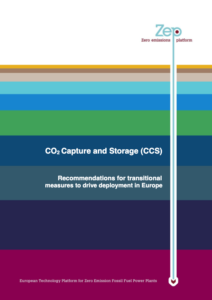The European Commission has confirmed that Europe cannot be decarbonised cost-effectively – and maintain security of energy supply – without CO2 Capture and Storage (CCS). Indeed, with fossil fuels currently meeting over 80% of global energy demand and as much as 85 GW of additional capacity expected in Europe alone, CCS is “vital for meeting the Union’s greenhouse gas reduction targets”.
Yet the benefits of CCS go far beyond that of climate change mitigation: with annual investments worth billions of euros, CCS will create and preserve jobs, boost industry and fuel economic growth, ensuring Europe remains competitive on the world stage as a leader in low-carbon energy technologies.
In order to identify how low-carbon technologies can decarbonise European power most cost-effectively in the horizon to 2050, the Zero Emissions Platform (ZEP) has developed a model based on an existing model from the Norwegian University of Science and Technology (NTNU) and linked to the Global Change Assessment Model (GCAM).
ZEP’s model is designed to select the lowest-cost investments to meet expected electricity demand, while replacing plants that exceed a defined lifetime – country by country. It is unique in that it not only takes into account optimised operating costs hour-by-hour, but a dispatch model of renewable power2 based on capacity factors and historic weather data.

